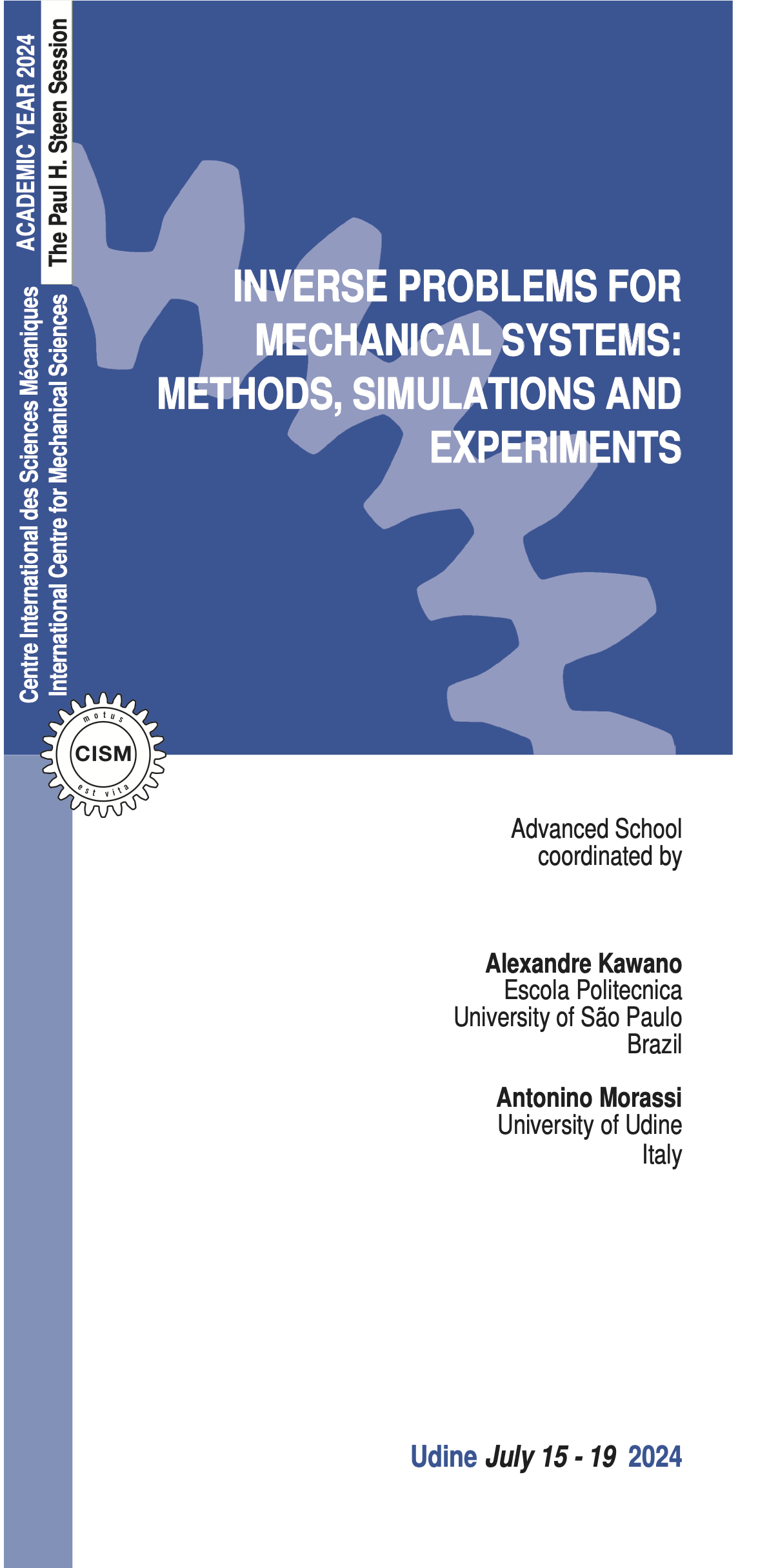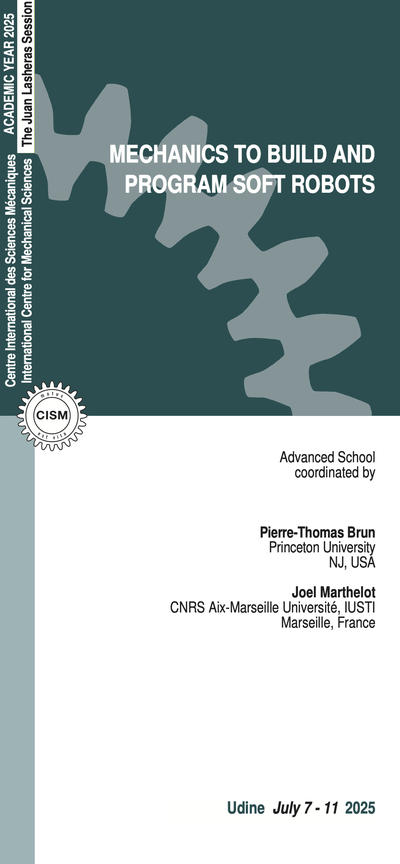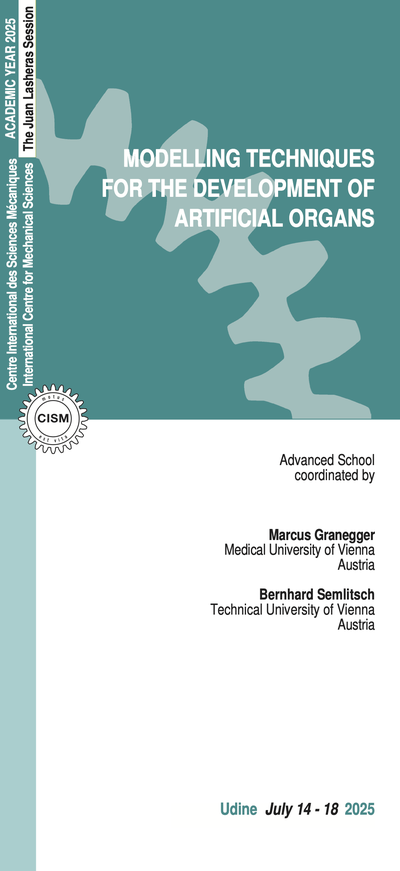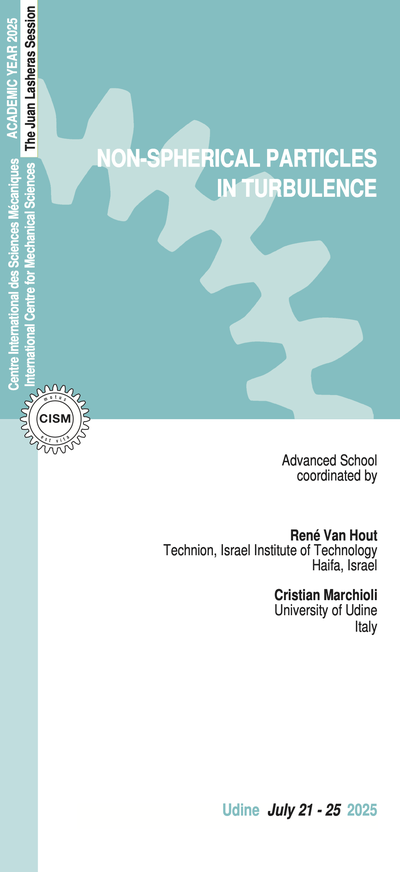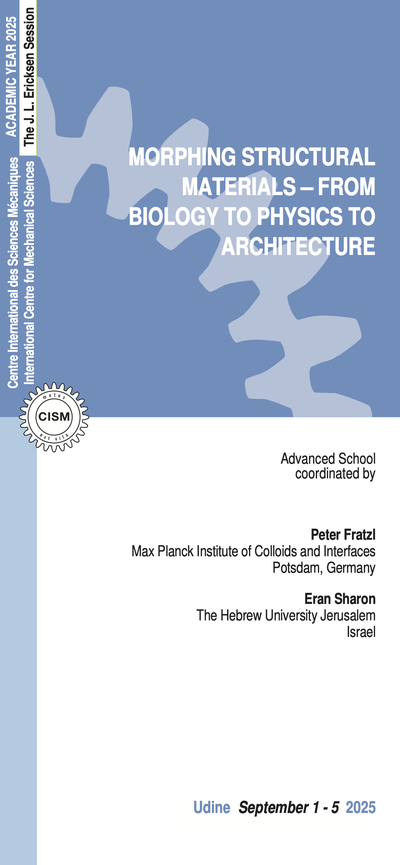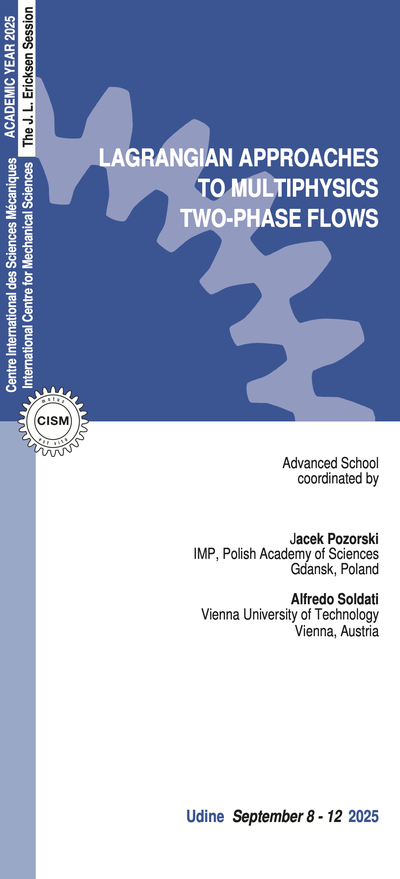Inverse problems are encountered in several areas in applied science and technology. When one studies a physical phenomenon which is governed by the equations of mathematical physics, the application of the model to real life situations often requires the knowledge of constitutive and/or geometrical parameters which in practice may not be completely known or are inaccessible to direct measurements. Other applications involve the development of non-destructive methods for identifying damage or defects in mechanical systems or for the identification of unknown forcing terms. Generally speaking, one has to deal with a class of problems in which the roles of the unknowns and the data is reversed, at least in part, with respect to the direct problems.
The analysis of inverse problems has inherent mathematical interest since, when compared with the corresponding problems of the direct theory, they do not usually satisfy the Hadamard postulates of well-posedeness and are highly non-linear, even if the corresponding direct problem is linear. In most cases, in order to overcome these analytical obstacles, it is impossible to invoke all-purpose, ready-made, theoretical procedures. Instead, it is necessary to single out a suitable approach and trade-off with the intrinsic ill-posedeness by using original ideas and a deep use of mathematical methods from various areas. Another important aspect of the study of inverse problems concerns with their numerical treatment, and the need of figuring out ad-hoc strategies for the implementation of robust solving algorithms, considering the presence of noise, measurement errors and the probabilistic character required in some contexts. The above critical issues are further amplified when inverse methods are applied to the study of full-scale mechanical systems, as additional obstructions arise because of the complexity of mechanical modelling, the inadequacy of the analytical models used to describe the physical phenomena, and incompleteness of the field data.
In this course we aim to provide a review of recent developments of inverse problems for mechanical systems. The topics will range from advanced techniques for damage detection and source identification in structures, dynamic methods for model updating and active vibration control, photo-acoustic imaging using resonating nanoparticles, the use of nanostructures as mass resonant sensors, probabilistic and deep learning-based methods, with attention to the computational and experimental aspects relevant for practical applications.
With this lecture series, we mainly aim to attract doctoral students and researchers interested in working in inverse problems in the areas of civil and mechanic engineering, mathematical physics, and applied mathematics. The objective is to provide the audience with a solid theoretical framework, mathematical tools needed to tackle specific classes of inverse problems, computational tools, and experimental evidence to better understand the most recent advances on the subject including those involving probabilistic deep learning.
S. Bi, M. Beer, S. Cogan, J.E. Mottershead, “Stochastic model updating with uncertainty ouantification: an overview and tutorial”, Mech. Syst. Signal Process. (2023), to appear.
M. Dilena, M. Fedele Dell’Oste, J. Fernández-Sáez, A. Morassi, R. Zaera, “Hearing distributed mass in nanobeam resonators”, Int. J. Solids Struct. 193–194 (2020), 55–69.
I.M. Gelfand, G.E. Shilov, “Generalized Functions”, New York: Academic Press, 1964.
A. Ghandriche, M. Sini, “An introduction to the mathematics of the imaging modalities using small-scaled contrast agents”, ICCM Not. 10 (2022), 28–43, arXiv:2008.12087.
A. Ghandriche, M. Sini, “Simultaneous reconstruction of optical and acoustical properties in photoacoustic imaging using plasmonics”, SIAM J. Appl. Math. 83 (2023), 1738–1765.
A. Kawano, A. Morassi, “Load identification in a plate-beam lattice from interior dynamic data”, Appl. Math. Model. 125 Part A (2024), 347–366.
A. Kawano, A. Zine, “Uniqueness and non-uniqueness results for a certain class of almost periodic distributions”, SIAM J. Math. Anal. 43 (2011), 135–152.
B.Ya. Levin, “Lectures on Entire Functions”, Translation of Mathematical Monographs, Vol. 150, Providence, Rhode Island: American Mathematical Society, 1996.
J.E. Mottershead, M. Link, M.I. Friswell, “The sensitivity method in finite element model updating: a tutorial”, Mech. Syst. Signal Process. 25 (2011), 2275–2296.
Y.M. Ram, J.E. Mottershead, “Multiple-input active vibration control by partial pole placement using the method of receptances”, Mech. Syst. Signal Process. 40 (2013), 727–735.
D. Ray, J. Murgoitio-Esandi, A. Dasgupta, A.A. Oberai, “Solution of physics-based inverse problems using conditional generative adversarial networks with full gradient penalty”, arXiv preprint arXiv:2306.04895 (2023).
Y. Song, S. Ermon, “Improved techniques for training score-based generative models”, Adv. Neural Inf. Process. Syst. 33 (2020), 12438–12448.
2 lectures on: Fundamentals and applications of Bayesian model updating; Benchmark testcase for stochastic model updating.
5 lectures on: Inverse source problems; Uniqueness and stability in the identification of almost periodic distributions; Mean spheres method; Applications to dynamical structural problems, including simulations on spider orb-webs; Applications using internal and boundary measurements.
5 lectures on: Overview of mechanical models for nanostructures; Resonator-based mass identification in nanobeams; Inverse eigenvalue problems with finite data; Numerical simulations and experimental validation; Identification of inclusions in nanoplates by boundary data.
4 lectures on: Eigenvalue assignment in mechanical systems; Passive structural modification and active vibration control; Model updating by the sensitivity method (deterministic and stochastic); Experimental validation and practical applications.
6 lectures on: Fundamentals of Bayes’s theory; Inverse problems via Bayes theorem; Deep learning methods; Variational inference and variational autoencoders; Conditional generative adversarial networks and conditional diffusion networks; Application to inverse problems for simulated and real mechanical systems.
6 lectures on: Overview of inverse spectral theory for ordinary differential equations; Introduction to generalized functions; Application to the identification of cracks in rods and beams from eigenvalue data; Numerical simulations and experimental validation.
6 lectures on: Wave propagation in presence of sub-wave length resonators; Fundamentals of modelling of acoustic waves generated by resonating bubbles and electromagnetic waves generated by plasmonic or highly-contrasting dielectric nanoparticles; Analysis in time-harmonic regime and time-domain regime; Inverse problems in photo-acoustic and ultrasound imaging.
ADMISSION AND ACCOMMODATION
The course is offered in a hybrid format, allowing participants the flexibility to attend either in person or remotely via the Microsoft Teams platform.
Limited spots are available for on-site attendance and will be allocated on a first-come, first-served basis.
The registration fees are:
- On-site participation: 600.00 Euro + VAT*
Includes a complimentary bag, five fixed menu buffet lunches, hot beverages, downloadable lecture notes.
Deadline for on-site application is June 15, 2024 June 30, 2024.
- Live Streaming Online Participation: 250.00 Euro + VAT*
Includes downloadable lecture notes.
Deadline for online application is July 3, 2024.
Application forms should be submitted online through the website: http://www.cism.it.
A confirmation message will be sent to accepted participants.
Upon request, a limited number of on-site participants can be accommodated at CISM Guest House at the price of 35 Euro per person/night (contact: foresteria@cism.it)
* where applicable (bank charges are not included) - Italian VAT is 22%.
CANCELLATION POLICY
Applicants may cancel their registration and receive a full refund by notifying the CISM Secretariat in writing (via email) no later than:
- June 15, 2024 for on-site participants (no refunds after the deadline);
- July 3, 2024 for online participants (no refunds after the deadline).
Cancellation requests received before these deadlines will be subject to a 50.00 Euro handling fee. Incorrect payments are also subject to a 50.00 Euro handling fee.
GRANTS
A limited number of participants from universities and research centres who do not receive support from their own institutions can request a waiver of the registration fee and/or free lodging.
Requests should be sent to the CISM Secretariat by May 15, 2024, along with the applicant's curriculum vitae and a letter of recommendation from the head of the department or a supervisor confirming that the institute cannot provide funding. Preference will be given to applicants from countries that sponsor CISM.
